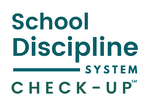|
ACEs (adverse childhood experiences) include adversities like: abuse, neglect, family substance abuse, and parental incarceration. The term ACE comes from the "ACEs Study", which was a Kaiser Permanente research project that built upon decades of research on the effects of child maltreatment and adversity on social, educational, and health-related outcomes in adulthood. This research spanned the fields of Social Work, Public Health, Medicine, and Psychology. The ACES study found that MOST people have been exposed to some level of trauma or adversity, and that there is a cumulative toll of adversity on adult health outcomes. Basically, the more adversity someone experienced in childhood, the greater the risk of poor social and health outcomes in adulthood. So should I give all my staff and students the ACEs screener?I'm so happy you're eager to hit the ground running, but please don't give this screening tool to your students (and I would actually suggest you avoid giving it to staff as well). This screening tool was originally designed as part of a research study, and was intended for adults. Providing students with the ACEs screener and requesting they fill it out doesn't actually give you information you can take action on in a proactive way. It tells you about what's happened to a child, or on the whole to children in your school (if you're looking at whole-school data) but nothing of their interpersonal strengths or resilience factors. If you're looking for actionable universal or targeted screenings, consider looking at social-emotional skills or developmental assets. The ACEs screener, when used as a tool to identify needs, can unfortunately lend itself to very deficit-oriented thinking about students, families, and communities. Additionally, the ACEs survey does nothing in the way of considering the impact of ACEs on historically oppressed populations. The ACEs survey does not account for the ways in which interpersonal ACEs (things like abuse, neglect, witnessing domestic violence) interact with community and systemic adversity (things like mass incarceration, community violence, structural oppression, historical trauma, etc...). what does it mean to be a trauma-informed school?The main take-aways that I would hope educators learn from the research on adversity, trauma, and toxic stress are: 1. Behaviors may be symptoms of toxic stress, trauma exposure, and disregulated brains (e.g., the fight, flight, freeze response). 2. As educators, we have an amazing opportunity to help students rewire their brains for resilience, regardless of their lives outside of school. Students spend 8 hours a day with us! By creating safe and supportive environments at schools and by responding to student behaviors with compassion and curiosity, we help students who have been exposed to trauma. Want support on incorporating trauma-informed, restorative, and positive discipline and classroom management practices into your school or district? I provide consulting and training for K-12 educators, school-based mental health professionals, and administrators. Contact me for more information.
Tammy Dee, MSW, LICSW
0 Comments
Your comment will be posted after it is approved.
Leave a Reply. |
AuthorTammy Dee, MSW. Archives
August 2019
Categories
All
|
|
ABOUT CASCADia youth mental health pllc (DBA transform discipline)
Cascadia Youth Mental Health PLLC helps youth-serving systems create environments that promote youth mental health and reduce risk for youth substance use through organizational consulting. Services include: school discipline policy and procedure consulting, substance use discipline consulting, training, and education. Programs specialize school discipline reform and alternatives to suspension and juvenile justice programs, and school substance use intervention. |
|
Website Privacy Policy & Terms and Conditions
|
Content Disclaimer: Any educational information on this site is educational only. It is not a substitute for professional psychological, mental health, psychiatric or medical advice, diagnosis, or treatment. Cascadia Youth Mental Health PLLC and its members assume no liability for any action taken in reliance upon information contained in this site.
|
substance use discipline practices
|
restorative practices
|
School mental health
|
School Discipline
|


 RSS Feed
RSS Feed

